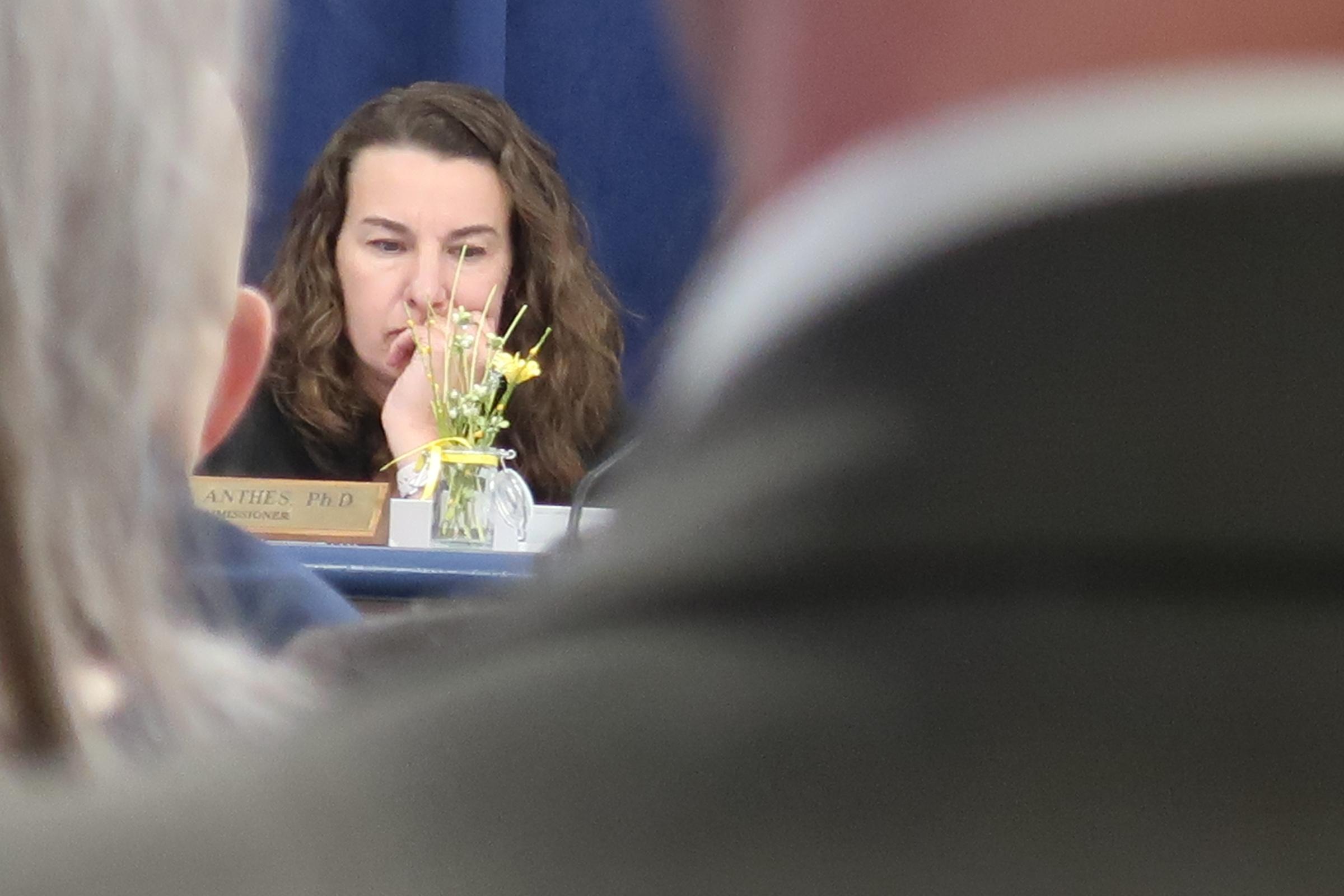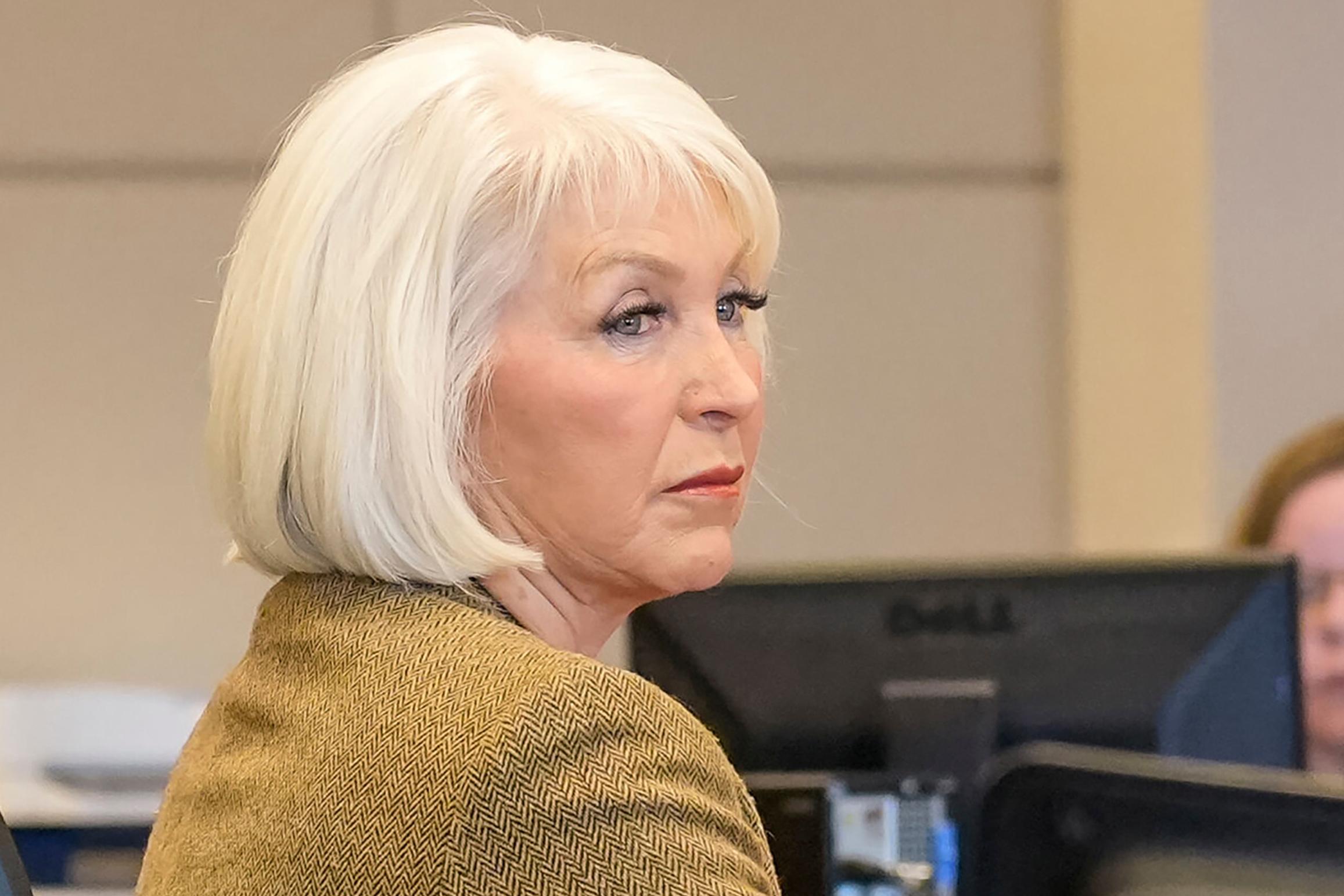
Updated 5:54 p.m.
Colorado Education Commissioner Katy Anthes plans to resign this July.
Anthes, who holds a doctorate in public policy, held the position since 2016 and is leaving as a newly expanded nine-member State Board of Education takes office in January.
Anthes said with a newly elected board and the pandemic winding down, it’s time for a new education chief.
“Good leaders know when they are ready to step down and maybe don't have quite the gumption or the fire in the belly that they used to have,” she said. “It's really time for me to let someone else bring some new energy, new perspective, and new ideas to the table.”
Anthes, at nearly seven years at the helm, had a comparatively long tenure compared to most education chiefs in Colorado. She was appointed interim commissioner in 2016 after the previous chief abruptly left the job after a few months, and by the end of the year, she was permanent.
Education leaders and advocates across the state were saddened by the news, describing Anthes as a “tremendous leader" for the state. They highlighted her transparency and the relationships she had with a number of groups, from parent advocacy organizations, teachers associations and other state agencies.
“I think we all owe her a debt of gratitude for her leadership,” said Jennifer Walmer, state director of Democrats for Education Reform.
Anthes oversaw multiple challenges during her tenure, with the largest being shepherding the department and overseeing school districts through the most challenging crisis ever in public education — the pandemic. Hundreds of thousands of students and teachers were sent into remote learning, something they had never done before.
Working with 178 different superintendents on difficult issues can test an education commissioner. The Colorado Association of School Executives awarded Anthes with their highest award in 2020 to acknowledge her leadership during the pandemic.
“She was on every single person’s call,” said Bret Miles, executive director of Colorado Association of School Executives. “She was always very personable and willing to be in the conversation and really made herself visible during that pandemic. She had to give a lot of unpopular answers during that time.”
Anthes is most proud of leading Colorado's effort to create a new education plan that included accountability measures, when the federal government replaced the No Child Left Behind Act, which gave more discretion to states. Another highlight is the collaborative work the department of education did with schools and districts that needed improvement and support.
She oversaw changes in the state’s accountability system, academic standards, multiple changes in the standardized tests administered, how teachers are evaluated and the implementation of the READ Act to help more kindergartners through third-graders read at grade level. Most of the low-performing districts that participated in state turnaround plans saw progress in test scores and graduation rates.
“She is a commissioner that pays attention to details,” said Van Schoales, senior policy director at the Keystone Policy Center. “She was a commissioner that both took feedback and was able to make adjustments along the way, in terms of practice and policy. That's often hard to do. Often commissioners are at the 30,000-foot level and aren't able to play out all the pieces around how things get implemented. And I think that she's done a great job on a number of those things.”
Anthes also navigated politically challenging issues, such as the board's decision to reorganize the Adams 14 school district after a decade of low performance.
“I also think that she held the line on any number of important decisions in terms of doing what was right for kids when there was enormous pressure on her to not do those things,” he said.
Schoales said being commissioner in Colorado is more challenging than many other states because the local control designated to schools in the constitution gives school districts a great deal of control and power over what happens. A commissioner must navigate different perspectives on policy and practices across the state with vastly different school districts.
“I think she navigated any number of very, very difficult decisions over the course of her tenure,” he said.
Some school districts find the accountability system is punitive, punishing them for having low test scores from high numbers of students living in poverty. Anthes said other districts began seeing a partnership with the Colorado Department of Education on improvement plans as supportive.
“It’s leading by that collaborative example,” Anthes said.
Anthes, while reporting to an elected board, was deeply involved in work that crossed over into other agencies, such as establishing the new Department of Early Childhood and building a teacher workforce.
“She understands how education crosses different agencies and different scopes of work. And if you're focused on children, you kind of need to be aware of and engaging in all of it. We saw Katy do that,” said Walmer.
Anthes garnered the respect of a politically diverse board of education for her attention to detail, equanimity and focus on consensus. Anthes said she tried to approach the diverse school board from a lens of curiosity and inquiry, rather than having a predetermined point of view, to find “some productive, middle ground.”
Board vice chair Steve Durham said Anthes has the perfect leadership style to guide the board and stakeholders through difficult policy decisions.
“Dr. Anthes has always been so respectful of different opinions and perspectives and at the same time she’s absolutely committed to the goal of ensuring all students have access to a high-quality education,” Durham said.
He said the state has made big strides in implementing the READ Act and providing work-based learning opportunities for high school students.
Walmer, of DFER, said she is relieved that Anthes is stepping down now at a time politics is seeping into school boards. Democrats maintain control of the new board by a six to three margin. She said Colorado is on the cusp of reimagining what school looks like from preschool to post-secondary.
“My hope is that they hire a leader that can continue to kind of be that thought partner with other agencies and state policymakers about what's possible,” Walmer said.
One hope that Anthes has for the future of Colorado’s education system is that different agencies begin working together on the massive challenges facing teachers and students. She said society expects schools to solve many of its challenges, from poverty to mental health and community violence. Anthes would like to see a more robust, collaborative system between, for example, the human services, health and education departments to create a wraparound model of staffing and support for schools.
“There's only so much one human can do to solve some of these challenges, and they (schools and teachers) really should be focused on instruction,” she said. “I think they want to focus on instruction, but there's all these other things that they rightly have to get involved in, but they need a lot more support to do that.”
Anthes, a self-described policy wonk, does not have a plan on what she will do next. She will take time to reflect now on “where I went to make a difference.”
The board is expected to discuss the replacement process early in the new year.









